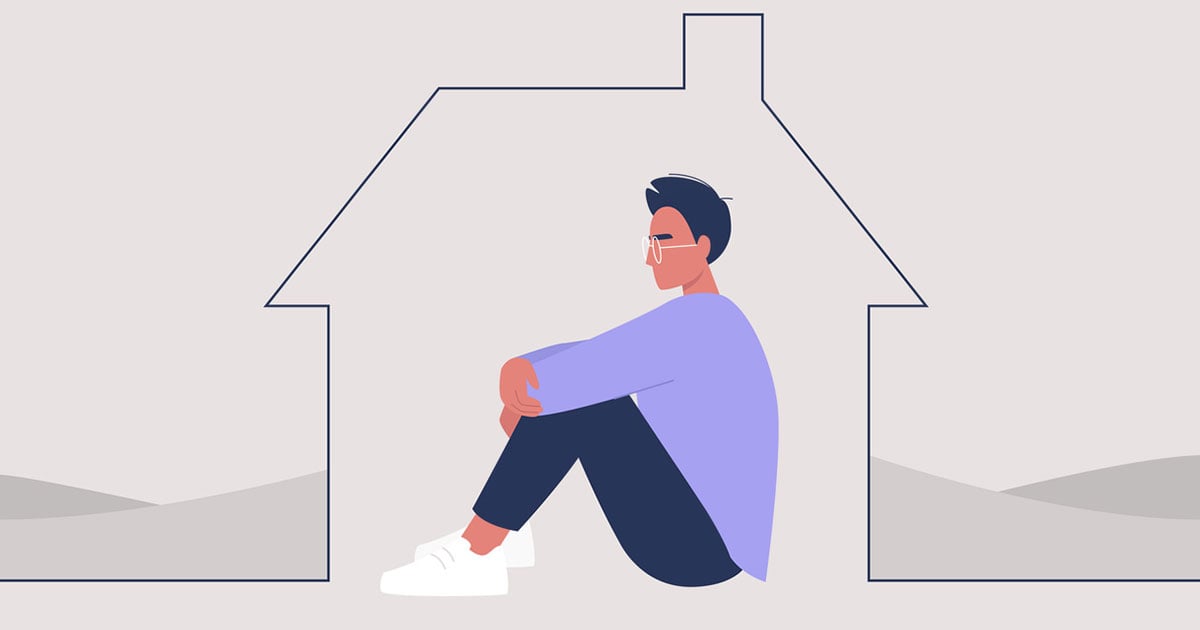
Advice to improve your movement, fitness, and overall health from the #1 in orthopedics in the U.S.
The Disadvantages of Working Remotely, from a Health Perspective
An HSS sports medicine doctor weighs the evidence for and against working from home.
Advice to improve your movement, fitness, and overall health from the #1 in orthopedics in the U.S.

In an op-ed published in the New York Times on Tuesday, March 14, HSS sports medicine physician Jordan D. Metzl, MD, calls out research showing that, in fact, remote work can be severely detrimental to workers’ overall health in both the short and long term.
Here, Dr. Metzl shares more about his work, what made him consider looking into the commuting-health connection, and important takeaways from current research.
What was your impetus for the op-ed?
With my patients, I increasingly started noticing people’s behavior patterns were changing. I began talking to my patients about working from home and their health behaviors. I had them open the health app in their phone and look at the differences between step counts during commuting days versus work-from-home days. And it was incredible to me how this concept I was thinking about—that working from home could be damaging to a person’s health—really showed up on their phone. All of a sudden, they went from taking thousands of steps a day on an office day to taking far fewer steps on a work-from-home day.
So much of the conversation to this point has focused on people’s productivity while working from home. But what about the health implications of remote work?
There definitely are some winners in this equation, people who have become more active, lost weight and felt better working from home. But there are many people who are doing worse, health-wise. These issues are going to be not only problematic now but also in the long term. So that inspired me to take an evidence-based look at the data.
What kinds of issues do you see happening in your patients that might be explained at least in part by the uptick in remote work?
More aches and pains for sure. Neck pain, back pain from sitting in less ergonomically favorable situations. And total body pain from not moving as much. What we do know is the stronger your muscles are, the less your body and joints hurt. With less activity, you lose muscle. And the weaker you are, the more everything hurts.
You go into this in more detail in the NY Times piece, but can you explain a little more about the link between movement and health?
The medicine of movement is one of the most powerful preventive health drugs we have. It works for every single person who takes it, young or old, anywhere around the world. And it’s completely free.
In my sports medicine practice, I address people’s aches and pains. I also have had an athletic life where I go out and do marathons and triathlons. Over the course of my 20-plus years of practice, those worlds have become increasingly closer. Today, I frequently prescribe exercise to my patients to keep them healthy and moving.
So-called “NEAT” behaviors refer to activity that comes from being active during the day rather than exercising.
How do these compare as far as what’s better for your health?
Full-blown exercise gets all the notoriety, but NEAT steps add up and they can have a profound effect on health. Daily activity, and sustained activity, can outweigh many negative health behaviors.
The more you’re moving, the healthier you will be over the short term, medium term and long term. Exercise and daily movement can even reduce your risk for conditions such as cardiovascular problems and certain cancers. It really is the most profound medicine we have.
What can people take away from this research, especially if they want or need to continue working from home?
I think the eye-opening point is that everybody thinks they’re winning if they can work remotely, but they may not be. If you’re remote working or working from home, you have to make sure you’re setting up daily activities that involve getting up, moving around and socially interacting.
There’s a lot of value to in-person work that people aren’t recognizing enough. Thus far, the discussion has focused on productivity or savings to a company, and the bigger picture is getting lost. I hope this helps stimulate broader discussions about why it’s advantageous to get people back in person.
Published 3/14/2023


